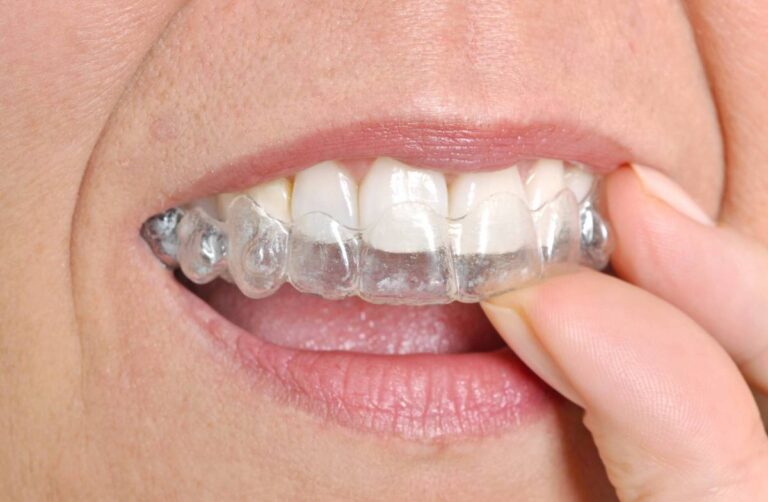Imagine you’re half awake while brushing your teeth early one splendid morning. You spit in the sink and then stare down in horror.
Blood!
Noticing that red stained toothpaste dripping down the side of the sink will jolt you awake right quick.
Is there reason to panic?
Well, bleeding gums can be a sign of a potentially serious issue. Other times, while not necessarily a good thing, it may not be something to lose much sleep over.
Here we’ll look at 11 of the main causes of bleeding gums.
1. Bad oral hygiene
Don’t take care of your teeth and guess what? You’re going to have some issues in your mouth.
Not brushing or cleaning your gums well leads to a buildup of plaque. Plaque is a sticky film that can build up on your teeth. It contains millions of bacteria. And not the good kind either.
This buildup can lead to inflammation, redness and, if you don’t do anything about it, eventually bleeding of the gums.
2. Gum diseases
Gingivitis is kind of like the little, mild manner brother of periodontal disease (aka gum disease). While it doesn’t pack the serious punch of its big sib, it’s a warning sign that if you don’t take action, things could get a lot worse in there.
Bleeding gums is one of the early signs of gingivitis. Good oral hygiene habits can help keep gingivitis – and bleeding gums – at bay.
3. Non-oral related diseases
There are some medical conditions that, while not specifically diseases of the mouth or gums, can cause bleeding gums. Leukemia, diabetes, hemophilia and scurvy are a few of them.
Only a small percentage of people with bleeding gums have them because of one of these diseases. However, it’s just a reminder that bleeding gums may be a sign of something quite serious. So don’t be shy about visiting a medical professional if you have bleeding gums to make sure you’re okay. Better to be safe than sorry.
4. Poor diet
A big change in your diet or eating a lot of crummy, unhealthy foods (tasty as they may be) can lead mouth problems including bleeding gums. Limiting how much sugary, salty or processed foods – along with eating food chock full of vitamins and minerals – can help keep your mouth in good health.
5. Smoking
Doesn’t it seem like every bad thing that can go wrong in your body can be linked to smoking? Well, it’s for good reason. Now you can add smoking to the list of things that can make your gums bleed. Smoking causes inflammation, enlarged gums and even gum disease which all lead to bleeding gums.
6. Stress
Like smoking, stress can be blamed for a lot of poor health issues. And, yet again, it’s for good reason. Being under a lot of stress weakens your body’s immune system. This can lead to a higher risk of gum disease and, yes, bleeding gums.
7. Prescription Meds
Medications can have side effects. Prescription meds – particularly those that cause blood thinning – can lead to bleeding gums. If you suspect your bleeding gums is caused by a medication you are taking, talk to your physician to see what can be done about it.
8. Kissing/Sharing
Here’s something we bet you didn’t know… gum disease is contagious. So by kissing or sharing food with others you can contract gum disease. And that can lead to gums that bleed.
9. Pregnancy
This one will only affect about half of you reading this. The hormones in a woman’s body change quite a bit during pregnancy. About 50% of pregnant women experience inflammation, redness, tenderness and even bleeding of their gums during brushing and/or flossing. This phenomenon is known as “pregnancy gingivitis”.
10. Flossing
If you floss irregularly or change your flossing patterns, it could lead to bleeding gums. Also, being too aggressive while you’re flossing can lead to some bleeding.
11. Rough play
Brushing your teeth too hard could cause your gums to bleed. Also, switching to a new toothbrush (especially if you go from one with soft bristles to one with hard bristles) can also irritate your gums and cause bleeding. Gentle bristles and a soft touch while brushing can help you avoid this problem.
Those are 11 of the most common causes of bleeding gums.
As you can see, many of them aren’t terribly serious. However, bleeding gums are a warning sign that you should pay attention to.
If you have bleeding gums, consult a medical professional. And if you think gingivitis or periodontal disease may be an issue, visit your local dentist or a periodontist (a dentist that specializes in treating gum disease). You can find a periodontist near you by searching the listings here.






